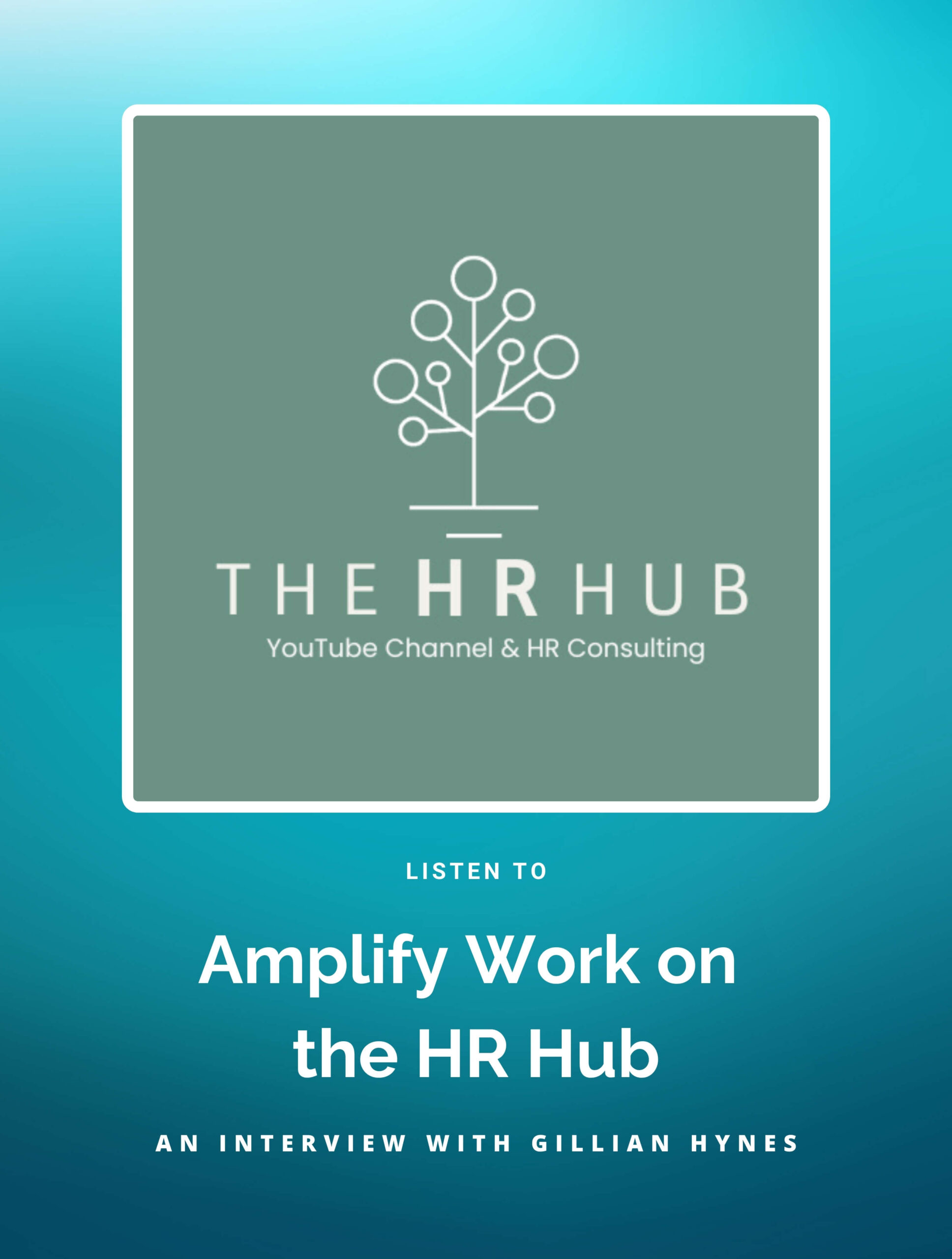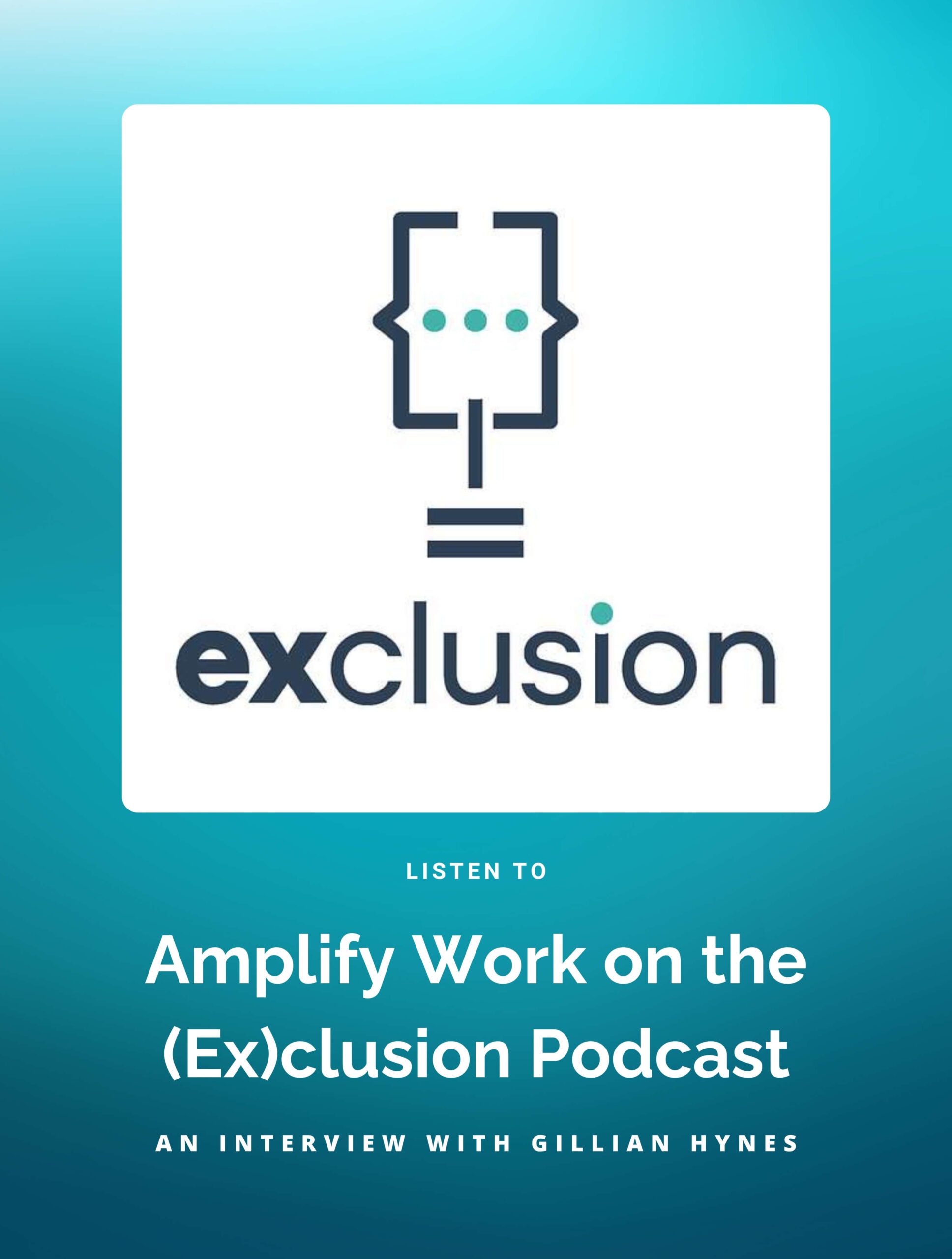
*This video originally featured Gillian Hynes as part of her work with Rise Consulting, where she contributed insights into Indigenous Inclusion and Reconciliation. Now, with Amplify Work, Gillian continues her commitment to advancing Reconciliation in HR practices, sharing insights and actionable steps for fostering inclusive workplaces.
Gillian Hynes sat down with Andrea Adams for a three-part conversation exploring the intersection of Reconciliation and Human Resources. The first conversation lays the foundation for Truth and Reconciliation, emphasizing that Reconciliation is not a box to check but an essential, ongoing commitment. Gillian reflects on her journey as a settler and Human Resources professional, stepping personally and professional into the role of a Reconciliation Practitioner.
The Importance of Positionality
Positionality is important, knowing where we’re from helps us to know where we’re going. Acknowledging our family histories, lived experiences, intersectionality and connections to the land, allows us to know where we are going and approach Reconciliation with awareness and accountability.
Why Land Acknowledgements Matter
Land acknowledgements honour and respect the Indigenous Peoples who have been on this land since time immemorial. They can also be a way to honour the reciprocal relationship one has with land, and it can also be used to acknowledge the traditional territories and treaty land a person may be on. Websites like Whose Land and Native Land can help us learn more and can support sharing land acknowledgements in a respectful way.
Advancing Reconciliation: The Role of Individuals, Organizations and HR Professionals
As an individual, Gillian always tells people to take action and to do something, knowing that it doesn’t have to be big. Individuals should read the TRC Calls to Action, listen to Indigenous voices, purchase from Indigenous owned business and creators, and reflect on our own knowledge gaps and biases. Organizations need to respond to Call #92 from the TRC which includes UNDRIP, FPIC along with promoting equitable access to jobs and educating employees on colonial history, human rights, and anti-racism. For HR professionals, there is such an opportunity to advance Reconciliation in the roles that we’re in. We have an ability to influence all areas of the people system in a workplace, and Reconciliation involves integrating Indigenous Inclusion into recruitment, learning and development, capacity building, policy creation and beyond. Importantly, it is about listening to Indigenous Peoples and spend time reflecting to increase your empathy, compassion and understanding of trauma in the workplace.
Reconciliation isn’t a Destination
Ultimately, there isn’t an end point in Reconciliation. It is a pathway that we have to commit to as individuals and as organizations, always listening, learning, reflecting, and importantly-taking action.
Read the next article
Read the Prev article
Amplifying People, Transforming Workplaces
We’re the team that partners with you to create workplaces that center people.
Every workplace is one-of-a-kind, and what ties them all together is that people are at the heart of every organization. We are a team of diverse HR, EDI and Reconciliation Practitioners who partner with organizations like yours to create customized, people-focused solutions that foster inclusion, build stronger teams, and create positive impact in the workplace.
Partnering with businesses across Canada, we offer human-centric solutions that drive business growth. Whether it’s through HR fractional or consulting services, strategic EDI plans, or Reconciliation Action Plans and Indigenous Community Engagement, our solutions are customized to meet your organizational goals. We’ll be with you every step of the way to create real, lasting change.
Our team has advanced HR, EDI and Reconciliation Practitioner skills from across a wide range of industries, along with diverse lived experiences. We hold Chartered Professional in Human Resources (CPHR) and International Association for Public Participation (IAP2) designations, ensuring wise practices and leading results.
We offer
Human-Centric Solutions
that drive business growth
Learn about our areas of practice
connect with us on linkedin
Fractional HR Services
On-going, strategic HR Leadership, tailored to your organization’s unique needs, without the full-time commitment.
Learn more
HR Consulting
Project-based HR solutions designed to address your organizational people needs and strategies.
Learn more
Learning and Development
Interactive and impactful learning experiences designed to share knowledge, build skills and inspire change in HR, EDI and Reconciliation practices.
Learn more
Reconciliation and Indigenous Engagement Consulting
Support in fostering respectful relationships with Indigenous communities through authentic community engagement and Reconciliation Action Plan (RAP) development.
Learn more
EDI Consulting
Expert guidance to create and implement equity, diversity and inclusion strategies that advances positive change in your workplace.
Learn more
Keynote and Speaking Sessions
Engaging speaking sessions designed specifically for your audience that spark dialogue on topics in HR, EDI and Reconciliation.
Learn more
Gillian on your team makes your whole team better.
Gillian’s excellence in HR shows up in every team, every organization, every meeting everywhere.
Kelley Lang
I Was Thoroughly Impressed.
Gillian was effective in understanding the First Nations’ needs and she was dedicated to delivering high-quality results.
Desiree Gervais
Gillian Hynes' work has been truly transformative.
Her generosity with her time and guidance in seeking the right perspectives were invaluable.
Nancy Cherniwchan
Gillian is an exceptional visionary leader.
Gillian’s fierce desire to see DEIB a reality gives her clients an edge to be ahead of the curve. I highly recommend Gillian.
Angel Sansregrett
It is with gratitude, respect and reciprocity that we acknowledge Amplify Work was founded in Moh’Kinstsis, Wîcîspa and Guts’ists’i, otherwise known as Calgary to settlers. We recognize the Indigenous Peoples, cultures, homes and oral teachings of the Treaty 7 signatories including the Blackfoot Confederacy, consisting of the Siksika, Piikani and Kainai nations, the Îethka Nakoda Nation, consisting of the Chiniki, Bearspaw and Goodstoney Bands, and the Tsuut’ina Nation. This is also part of the historic Northwest Métis homeland and to the Otipemisiwak Métis Government, Métis Nation District 5 and 6. We acknowledge as a remote team, we may work across many Traditional Territories, and we honour all Territories and Treaties as Treaty People in Canada.

Don't just take our word for it.
Amplify Work